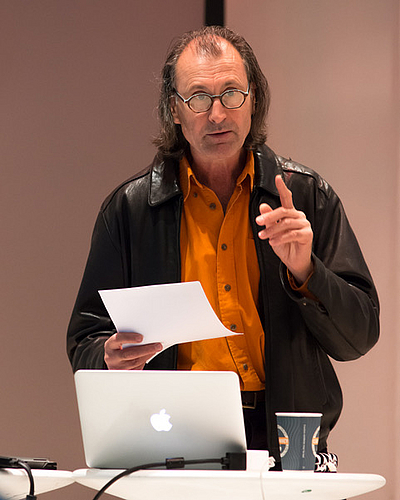Skill: Know-how, Artisanal Practices and 'Higher’ Cognition
27. Oktober 2023, 13.30 Uhr Kunstuniversität Linz, Domgasse 1, Lecture Room
Interface Cultures lädt zum Vortrag von Simon Penny.
Skilled practitioners attest that in their experience of skilled practice, intelligence feels like it is happening in peripersonal space, at the fingertips, on the workbench. This paper begins from the premise that skilled embodied practices are intelligence - as much improvisation as hylomorphism (Ingold) - enacted amongst tools, materials and cognitive ecologies. As a lifelong practitioner, I seek to remain grounded in practice, while pursuing an interdisciplinary inquiry into the concept of skill, engaging philosophy, psychology, anthropology, cognitive science and neuroscience. The experience of skilled practices destabilises the (received) skill-intelligence binary, which is seen as a corollary of the mind-body binary. A dualist framework that distinguishes ‘higher' and ‘lower’ cognition and valorises abstraction, is not conducive to optimal discussion of skill. I will discuss the historical construction of this privileging of abstraction in philosophy and theorisation of cognition. A different framework will be suggested, drawing upon concepts of know-how (Ryle), the ‘performative idiom’ (Pickering), enactivism (Varela, Thompson, DiPaolo), pre-reflective awareness (Legrand), epistemic action (Kirsh), cognitive ecologies (Hutchins, Sutton). Arguments from neuroscience are then marshalled, focusing on phylogenetics and on proprioception, in order to build a non-dualist approach to neurophysiology, that provides a more balanced theoretical framework within which to discuss skill and/as cognition. If embodied practices are taken to constitute intelligence, this has ramifications for general conceptualisations of intelligence, and in turn, for rhetorics validating artificial intelligence, and claims made for interactive screen-based pedagogies.
